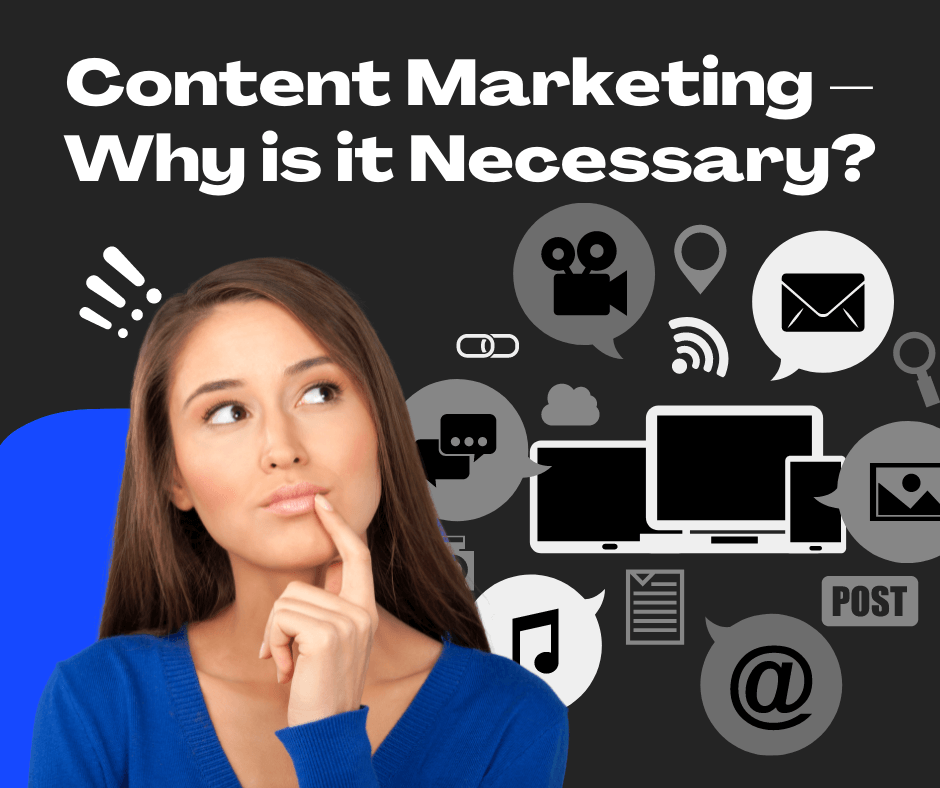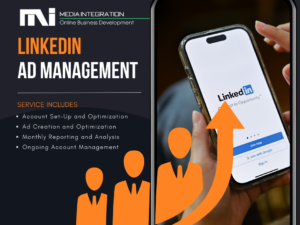What is Content Marketing and Why It’s Crucial for Business Owners
Content marketing is far more than a trendy catchphrase; it’s a dynamic and potent strategy that can bring transformative benefits to your business. At its core, content marketing entails creating high-quality, valuable content aimed at attracting and engaging a specific target audience. The ultimate goal is not just interaction but conversion, turning these engaged audiences into paying customers. According to research from the Content Marketing Institute, a whopping 91% of B2B marketers leverage content marketing as a key part of their overall strategy[^1^].
But what does this mean for you as a business owner or entrepreneur? Firstly, the world has changed; traditional forms of advertising like radio spots and print ads are losing effectiveness. Today’s consumer is more likely to research and interact with brands online before making a purchase decision. This is where content marketing shines. By providing valuable information or entertainment, you can position your business as an industry leader and trusted source.
Another advantage of content marketing is its cost-effectiveness. Unlike paid advertising, where you pay for each interaction, the content you create is a long-term asset that continues to engage customers over time. It can also improve your search engine rankings, making it easier for customers to find you online. This dual benefit of enhanced visibility and consumer trust can result in a substantial return on investment (ROI).
Additionally, content marketing is highly adaptable, catering to businesses of all sizes and industries. Whether you’re a tech start-up aiming to break into the market or a local restaurant looking to attract more diners, the principles remain the same: deliver high-value content to a targeted audience to build trust and encourage customer action. This adaptability makes it a universally applicable and highly effective tool for business growth.
In a nutshell, content marketing offers you the opportunity to connect with your audience on a deeper level, build lasting relationships, and drive business in a way that’s both effective and budget-friendly. Given these benefits, it’s no surprise that so many successful marketers rely on content marketing as a cornerstone of their outreach and engagement efforts.
The ROI of Content Marketing: Real Numbers, Real Impact
Investing in content marketing is far from a financial gamble; rather, it’s a strategic move with compelling numbers to back its efficacy. According to research, content marketing not only costs 62% less than traditional marketing methods but also generates three times as many leads[^2^].
For you, as a business owner or entrepreneur, these statistics are more than just numbers on a screen. They represent a tangible opportunity to do more with less. Traditional advertising can be expensive and its outcomes nebulous, but content marketing offers a quantifiable and cost-effective alternative. Especially for smaller businesses or startups with limited budgets, this is a chance to engage with a targeted audience without breaking the bank.
But the financial savings are just the tip of the iceberg. The leads you accrue through content marketing are often higher in quality, which translates to higher conversion rates and ultimately, more sales. Digital marketing guru Neil Patel serves as a perfect case study. Patel skyrocketed his website traffic to 195,013 monthly visitors through dedicated content marketing efforts[^3^]. The value here isn’t just in the impressive visitor numbers but in the long-term relationships and authority that quality content can build.
A well-executed content marketing strategy has enduring effects. The content you generate becomes a long-standing asset, continually attracting and engaging potential customers. Additionally, a robust content catalog enhances your SEO, making you more visible online and bringing in even more organic leads over time.
Indeed, the benefits of content marketing are multifaceted. It can lower acquisition costs, reel in more qualified leads, increase your online visibility, and position you as an industry authority. These are not short-term gains but long-lasting impacts that can fundamentally boost your business. Now that we’ve established the undeniable returns you could reap, it becomes clear that the next crucial step is devising a targeted strategy to harness this potential.
Implementing Content Marketing: Strategy is Key
Embarking on your content marketing journey without a well-defined strategy is akin to setting sail without a compass. You might be moving, but there’s no guarantee you’re heading in the right direction. Studies confirm that a staggering 63% of businesses do not have a documented content marketing strategy[^4^].
So, what does having a strategy entail for business owners and entrepreneurs like you? It begins with identifying your target audience and understanding their needs, behaviors, and pain points. From there, you can outline the types of content that would most resonate with them, whether it’s blog posts, videos, podcasts, or other forms of media.
A content marketing strategy also requires setting clear, achievable goals. Are you looking to increase brand awareness, boost sales, drive website traffic, or perhaps accomplish multiple objectives? Once you’ve defined your goals, you can choose key performance indicators (KPIs) to measure your progress. It could be metrics like click-through rates, conversion rates, or social shares, depending on what you’re aiming to achieve.
Planning the logistics is equally important. This involves creating a content calendar that outlines what, when, and where to publish. Consistency is key in content marketing; erratic or sporadic posting can disengage your audience and harm your brand’s reputation. A well-thought-out calendar ensures you stay on track and maintain a consistent posting schedule.
Furthermore, a strategy isn’t a one-off task but an evolving process. Market conditions change, consumer behaviors shift, and new competitors emerge. Your content marketing strategy should be flexible enough to adapt to these changes. Periodic reviews and adjustments are essential for ensuring that your strategy stays aligned with your business objectives and continues to deliver results.
A finely-tuned content marketing strategy serves as your navigational chart, guiding every facet of your efforts—from identifying your target audience and setting achievable goals to executing with precision. Lacking a solid strategy could result in squandered time, money, and business opportunities—luxuries no entrepreneur or business owner can afford to lose. So, with the essential role of a well-defined strategy firmly established, let’s now turn our attention to a closely related subject that’s just as crucial: the types of content that will truly resonate with your audience.
Types of Content that Resonate with Your Audience
In the realm of content marketing, versatility is your ally. Each type of content has its own unique strengths, tailored to achieve specific objectives. For instance, blog posts excel in boosting SEO, while videos shine in terms of social media engagement. According to a study, a whopping 54% of consumers are interested in seeing more video content from businesses they support[^5^].
So, what does this mean for business owners and entrepreneurs like yourself? First, it’s crucial to recognize that blog posts are more than just walls of text; they’re invaluable assets for your SEO efforts. Well-researched, high-quality blog posts can improve your website’s visibility on search engines like Google. They are especially impactful for B2B businesses, where buyers often seek comprehensive information before making a decision. Blog posts can serve as that trusted source of information, helping to establish your brand’s credibility and expertise in your field.
However, if social media engagement is your primary goal, videos might be the way to go. Videos are naturally engaging, easy to consume, and highly shareable. They offer a quick way to demonstrate a product’s features, narrate your brand’s story, or even educate your audience. And with the 54% statistic in mind, the demand for video content is not something you can afford to ignore. Investing in quality video production could yield impressive returns in the form of increased consumer engagement and brand awareness.
The landscape of content types extends beyond just blog posts and videos, opening up a world of possibilities. Podcasts, for example, offer an intimate channel to dive deep into subject matters, capturing your audience’s attention for extended periods. Infographics can convey complex data in an easily digestible visual format, perfect for sharing on social platforms. Other types like case studies, white papers, and customer testimonials contribute to a rounded, multi-faceted content strategy that builds both trust and authority.
In essence, a diversified content strategy allows you to tap into various consumer needs and preferences, thereby widening your reach. It’s not about choosing blog posts over videos or podcasts over infographics; it’s about leveraging a mix of content types to serve different purposes and resonate with your target audience. So as you map out your content marketing strategy, consider incorporating a variety of content forms to meet the multifaceted needs of your audience effectively.
Content Marketing Metrics: Measure to Manage
The saying “You can’t improve what you can’t measure” rings particularly true in the context of content marketing. Key performance indicators (KPIs) serve as your roadmap to success, offering invaluable insights into how your content is performing. Metrics such as website traffic, social shares, and conversion rates can act as beacons, guiding you towards areas for improvement or scaling. The power of data-driven strategies is illustrated by the Huffington Post, which reports that companies with active blogs generate 97% more inbound links[^6^].
If you’re a business owner or entrepreneur, you understand the importance of every dollar and minute invested in your operations. In the same vein, measuring KPIs provides a quantitative basis to evaluate the ROI of your content marketing efforts. For instance, website traffic can offer a direct look at how well your SEO-focused content is pulling in potential customers. If a particular blog post drives a surge in visitors, it might be worth replicating the strategies used in that piece for future content.
Social shares, on the other hand, gauge the virality and engagement level of your content, particularly videos and infographics. A high number of shares usually indicates that your content is resonating with your audience, thereby amplifying your brand’s reach and potential for customer conversion. If you notice that a certain type of content is consistently earning more shares, it may signal the need to focus more on that format in your upcoming strategy.
Conversion rates tie it all together by measuring how effectively your content turns potential customers into actual buyers. If your content is driving a lot of traffic but not resulting in conversions, then it’s essential to reevaluate your call-to-action elements, landing page designs, or even the content itself. Conversion optimization is a critical step in ensuring that your content marketing efforts are translating into real business results.
To put it simply, metrics offer a real-time snapshot of your content marketing performance, allowing you to make informed decisions to refine your strategy. These numbers help you understand what’s working and what needs fine-tuning, turning your content marketing efforts from a guessing game into a science. Armed with these insights, you can continually adapt and grow, ensuring that your content marketing remains a potent tool in achieving your business goals.
Conclusion: Your Content Marketing Journey Begins Today
We’ve journeyed through the critical aspects of content marketing that every business owner and entrepreneur should know. We started with understanding what content marketing is and its undeniable importance for modern businesses. Then, we moved onto the ROI it offers, emphasizing that it’s not just an expense but an investment with real, measurable returns. The conversation then transitioned to the importance of having a well-crafted strategy, without which your content marketing endeavors are like a ship without a compass. Different types of content and their unique purposes were discussed, followed by the crucial role of metrics in measuring and managing your content marketing efforts.
Action Plan
Disclaimer: The following action plan is for informational purposes only. Actual results may vary.
- Define Your Strategy: Identify your target audience, their needs, and set clear goals for your content marketing efforts.
- Choose Content Types: Decide on a mix of content forms like blogs, videos, podcasts, etc., that would resonate most with your audience.
- Set KPIs: Choose metrics like website traffic, social shares, and conversion rates to gauge the performance of your content.
- Create a Content Calendar: Plan when and where you will publish your content.
- Execute and Measure: Publish according to your calendar and measure results using your chosen KPIs. Adjust your strategy as needed based on these metrics.
Now, for those who are serious about mastering the art and science of content marketing, we’ve got something special for you. Our comprehensive E-BOOK “Content Marketing Formula” is packed with advanced tips, actionable strategies, and real-world examples that can transform your content marketing game. Why navigate this journey alone when you can have a proven roadmap at your fingertips? Download it today and take the first step towards content marketing mastery.
Thank you for taking the time to read through this comprehensive guide. Content marketing is an evolving field, but with the right strategy, diverse content types, and metrics to guide you, your business is well on its way to success.







